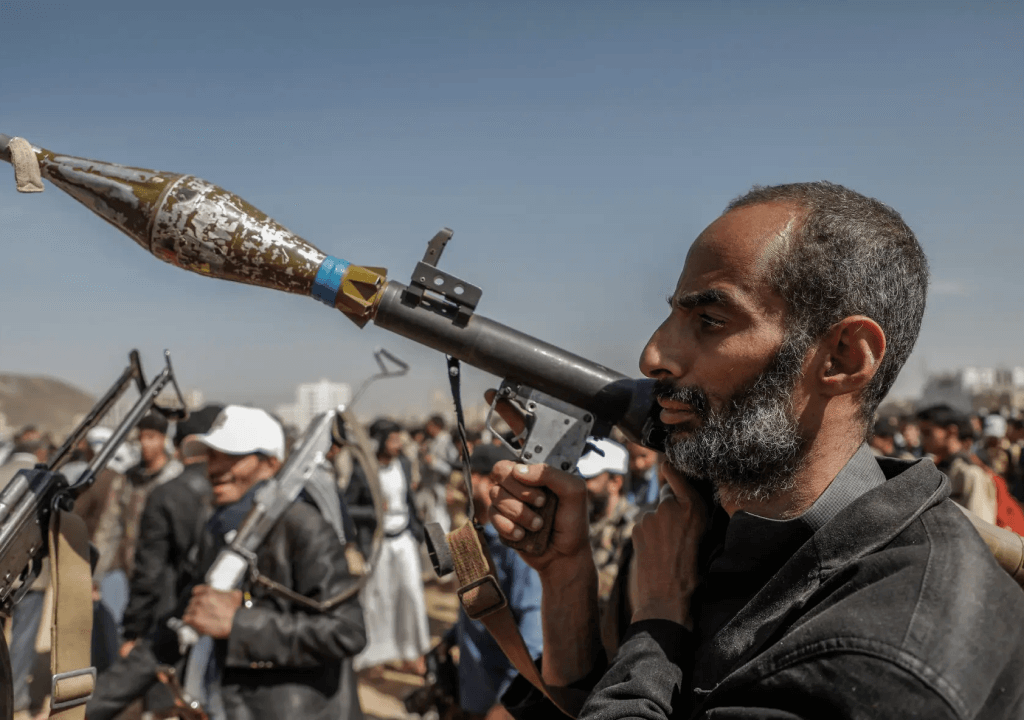Israel was stunned last week by a drone attack on its second-largest city, Tel Aviv. The drone, launched by the notorious Houthi militia, an Islamist organization operating from Yemen, penetrated Israel’s renowned surveillance radars and missile defense system, hit its target, and caused the death of an Israeli citizen while injuring multiple others. This incident was a significant embarrassment for Israel, which prides itself on its defense technologies. Although Israel conducted powerful airstrikes the day after officials vowed revenge, devastating the Red Sea port city of Hodeidah, an important location for the Houthi-led government in Yemen, Israelis now realize these militias can strike them by breaching defense systems. While the Houthis and other Islamists are celebrating their attack on Israel, there is global concern that Yemen, along with Lebanon and Syria, might escalate into a war with Israel. However, this will not be an easy task for Israel.
The Houthis, an Islamic insurgent group linked with Iran, control a significant area in Yemen along its Red Sea coastal region, a vital trade route. They have long supported Palestine and Gaza, pledging to eliminate Israel. They have allied with Hamas and Hezbollah, two Islamist organizations with the same goal of establishing a Palestinian Muslim state from the river to the sea. The Houthi militia has targeted ships in the Gulf of Aden and disrupted maritime activity in the Red Sea for months in response to Israeli attacks in Gaza, garnering support from the Islamic world as they advocate for Islam more than the so-called wealthy Islamic kingdoms.
Although numerous strikes against Israel and Western-linked ships have severely disrupted business at key Israeli ports, the recent strike on Tel Aviv was the first direct hit on Israel since Houthi rebels began targeting the country with missiles and drones last year. All previous attacks had been intercepted until Friday’s strike. The Houthis immediately claimed responsibility and boasted that they had used a new type of drone undetectable by radar and air defense systems.
Israeli officials downplayed the Houthis’ claim, attributing it to “Human Error” rather than the Houthis capability to conduct a long-range attack that skillfully evaded Israel’s technology. Chief military spokesperson Rear Adm. Daniel Hagari stated that the drone had been detected by air defenses, but an “Error” prevented its interception.
On Saturday, the very next day, the Israel Defense Forces (IDF) announced that its fighter jets had struck military targets in Hodeidah Port in Yemen “In response to the hundreds of attacks carried out against the state of Israel in recent months”. The airstrikes targeted a refinery and electricity infrastructure, igniting a massive blaze. Reports indicate that three people were killed and 87 wounded in the strikes on the oil facilities, though this has not been confirmed. Later in the evening, Israeli Prime Minister Benjamin Netanyahu addressed the attack, stating that the port was targeted because it was being used for military purposes. He added that the strike sends a clear message to their enemies that there is no place beyond the reach of Israel’s long arm.
The score is now 1 to 1, and it will likely end this way, just like the Israel-Iran conflict. However, political experts have other opinions. The increase in the number of missile attacks from the Houthis, Hezbollah, and Syrian Islamist militants proves they are intensifying their actions against Israel. They are aware that Western support for Israel is diminishing while support from the Muslim world for these groups is increasing, which is certainly advantageous for them. The Houthis vowed to “Plague” Israel with further attacks in response to the strikes on their port city, an approach that must be viewed within the context of the shifting global sentiment regarding the Israel-Gaza war.
Israel is also unlikely to escalate the situation further because they know it isn’t as easy as dealing with Lebanon or Syria. The geographical distance, diminishing global support, and potential disruptions to global logistics will influence Israel’s decisions. The situation resembles Afghanistan. Saudi Arabia, despite having modern weapons, failed in their costly intervention in Yemen. The U.S. and U.K. also experienced setbacks with direct proxy wars there. Therefore, Israel is unlikely to engage in a full-scale war against the Houthis or Yemen right now. The drone and missile attacks will likely continue, as both sides seek to showcase their strength. However, since they are targeting populated cities, human losses are to be expected. Missiles are for killing people, not for finding solutions.








